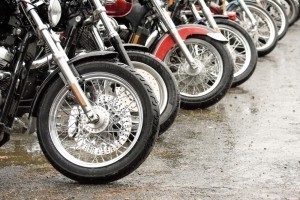INDEPENDENT DEALER
Wolcott, CT | (203) 592-7113
OUR BLOG
Are you ready to buy your first motorcycle? If so, you must consider a few things to make your purchasing process smooth and successful. Keep reading this post by Oilrich in New York, Massachusetts, and Connecticut to learn more.

What to Consider When Buying Your First Motorcycle
Budget
The first thing you should do is to budget. Setting a figure from the beginning is key to figuring out what kind of bike you can afford and what is the best financing option for your purchase.
If you've never made a budget, start by listing your monthly income and expenses. Write down how much you pay in debt, loans, fixed costs (such as rent or food), personal interest, and outings with friends. Once you figure out all your monthly fees, see how much you can save per month without sacrificing your lifestyle. Ideally, the payments for your motorcycle should not exceed 20% of your monthly income. Be careful with this percentage, though, because, in addition to covering the cost of the bike itself, it should include the payments associated with its use and maintenance, for example:
- Fuel
- Insurance
- Service and maintenance
- Taxes
- Registration
- License
- Safety equipment
The continued use of AMSOIL's 15W-60 Synthetic V-Twin Motorcycle Oil helps protect your motorcycle's mechanical systems against wear, friction, and heat. To place an order for the most reliable synthetic oil at New York, Massachusetts, and Connecticut, visit AMSOIL's online store or call Oilrich in New York, Massachusetts, and Connecticut at (203) 592-7113.
Needs
Once you have defined your budget, ask yourself what type of motorcycle suits you best. Think about your needs, likings, expectations, and lifestyle. All those things ultimately play a crucial role in your purchase decision. For example, let's say you've dreamed of touring the country on a motorcycle for years. In that case, your best bet would be to go for a touring or cruising-style motorcycle. Likewise, suppose you're a beginner biker who wants to start with something manageable, affordable, and comfortable to ride around town. If so, you could use a standard bike or even a scooter. Whatever your needs are, keep them in mind when looking for and choosing your bike.
Take a Motorcycle Safety Course
Our next tip is to take a motorcycle safety course. Besides serving as a foundation for developing or honing your riding skills, a course can help you get your insurance and driver's license. That said, here are some of the essential knowledge and skills you can get in a course:
- Fundamentals of a bike's operation
- Key safety concepts
- Maintenance requirements
- How to react in dangerous situations on the road
- How to ride on the road
- How to ride with a passenger safely
- State requirements for operating your motorcycle
The best thing you can do to keep your first motorcycle in top shape is to feed it with the most effective synthetic oil in New York, Massachusetts, and Connecticut. For more advice on which formulas work best for your engine, talk to the oil pros at Oilrich in New York, Massachusetts, and Connecticut at (203) 592-7113. Don't forget to browse AMSOIL's online store to explore the full line of quality oils and products.
New or Used?
During your shopping process, you'll come across pre-owned and new motorcycles. Before choosing between the two options, you should know their pros and cons. For one thing, it is the dream of most people to buy a brand-new motorcycle. Having new parts and zero miles, it is the most reliable option. However, buying a new bike means a higher expense and faster depreciation.
Second-hand bikes, on the other hand, are more affordable. You can even find used bikes with one or two years of use that are almost as good as a model right out of the dealership. Yet, as these are bikes with previous use and wear, it is advisable to have them checked by a mechanic before buying them to avoid getting something that will need costly repairs.
Look for a Bike That Fits Your Body Comfortably
By this point, you've probably narrowed your choices to two or three bikes that match your needs and budget. So, our next tip is to sit on each one to find out how they fit your body. When doing so, check the weight, seat height, riding position, and, most importantly, how you feel sitting on each bike. Getting familiar with all your options will help you make a final choice for the bike that best suits you.
Lastly, Check the Motorcycle's Documents
Once you choose the motorcycle you want, double-check its documentation. Of course, following this step is more straightforward when buying a new bike. After all, the dealer's salesperson handles the paperwork. But, if the motorcycle you intend to buy is pre-loved, ensure that the numbers on its headstock match the numbers on the title. Also, ask for service records and the owner's manual to ensure a smooth transaction.